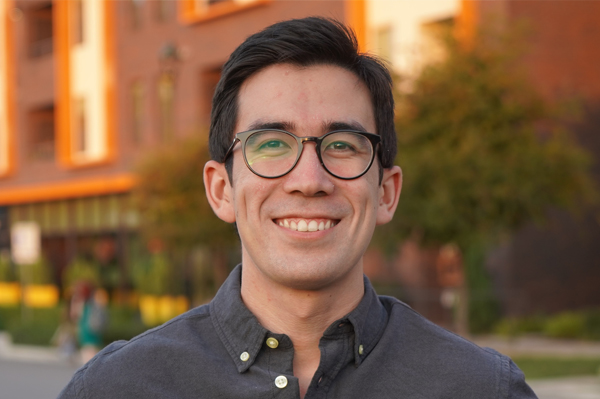Past Event: PhD Dissertation Defense
Cyrus Neary, Ph.D Candidate, Oden Institute
3 – 5:30PM
Wednesday Jul 17, 2024
POB 6.304 and Zoom
How can we transform artificial intelligence (AI) capabilities into engineering systems? That is, how can we engineer AI systems within budget constraints, certify them with respect to stakeholder requirements, and ensure that they meet the needs of the end user? Towards answering these questions, this dissertation develops engineering methodologies for the design of scalable and reliable AI systems, as well as AI algorithms that leverage the unique characteristics of specific engineering problems.
First, I present methods for the design and operation of compositional AI systems. These methods enable independent development and testing of separate learning-enabled modules, and ultimately facilitate the process of reliably deploying compositions of these modules in practice. More specifically, I develop algorithms---and the theory behind them---to decompose single-agent and multiagent reinforcement learning problems into component subproblems. Experiments on robotic tasks demonstrate that these algorithms can reduce the computational requirements of the learning problem by orders of magnitude in comparison with monolithic approaches. Furthermore, by establishing well-defined mathematical interfaces between subsystems, the algorithms automatically decompose system-level design requirements into component-level requirements. Each component is then developed and tested independently, and the satisfaction of component-level requirements is used to place formal assurances on the behavior of the system as a whole.
Next, I present control-oriented deep learning algorithms that integrate data with prior physics and engineering knowledge, yielding learning-enabled systems that effectively control hardware after mere minutes of data collection and training. Physical systems often have well-studied mathematical structures that can provide useful inductive bias, even when very little is known about the system of interest. The presented algorithms use such structures to inform the architectures of so-called neural differential equations and to place constraints on their internal states and predictions. The resulting models are data-efficient, they generalize well, and they are effective for real-time control and for model-based reinforcement learning. Furthermore, imposing physics-inspired structures on neural network architectures gives rise to novel compositional approaches for learning models of coupled dynamical systems.
Experiments on robotic hardware, including both hexacopter and unmanned ground vehicle platforms, demonstrate the important role that these algorithms play in the fast and reliable transfer of simulation-and-data-driven AI algorithms to their target, real-world operating environments.
Cyrus Neary is a Ph.D. candidate in Computational Science, Engineering, and Mathematics at the University of Texas at Austin. His research supervisor is Professor Ufuk Topcu. His research develops theory and algorithms that enable scalable, generalizable, and modular artificial intelligence systems for purposes of robotics, autonomy, dynamics modeling, and control. Prior to his Ph.D., he earned a B.A.Sc. in Engineering Physics from the University of British Columbia.
